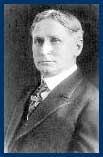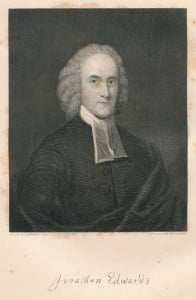God Will Surely Provide
![Rev. Samuel Davies [3 November 1723 - 4 February 1761]](https://thisday.pcahistory.org/wp-content/uploads/2012/04/DaviesSamuel-231x300.jpg) It was on this day, September 26th, in 1759, that the Rev. Samuel Davies was installed as President of the College of New Jersey. [It was upon the occasion of its sesquicentennial celebrations in 1896, that the school’s name was changed to Princeton University.] How did the Lord prepare Samuel Davies for such an important position? One part of that story is told on the early pages of his Memoir:—
It was on this day, September 26th, in 1759, that the Rev. Samuel Davies was installed as President of the College of New Jersey. [It was upon the occasion of its sesquicentennial celebrations in 1896, that the school’s name was changed to Princeton University.] How did the Lord prepare Samuel Davies for such an important position? One part of that story is told on the early pages of his Memoir:—
During the first part of the eighteenth century, religion was, perhaps, in a lower state of declension, throughout the British dominions, than at any other period since the reformation. The concurrent testimony of churchmen and dissenters establishes this fact. Many clergymen of various denominations had become very lukewarm, and in many instances exceedingly corrupt; and the people were ready enough to follow the steps of their spiritual guides. It was in this season of darkness that several men were born, who, afterwards, were burning and shining lights in the world. The names of Tennent, Blair, Edwards, Davies, and Whitefield, may suffice to illustrate this remark. Since their day, vital piety has gradually increased, and the spiritual condition of the church of Christ has become more prosperous. The subject of this memoir was powerfully instrumental in producing the happy change.
Samuel Davies was born in the county of Newcastle, Delaware, November 3, 1724. The Christian names of his parents are unknown to us; nor can we say anything of the origin of the family, or trace it beyond the immediate progenitors. The father is represented to have been a plain farmer, in very moderate circumstances; the mother a very sensible and judicious woman; both were pious. Their son was a child of prayer; and was from the birth devoted to God by the name of Samuel.
It is known that the religious declension, of which mention was made above, extended to Virginia. About the year 1740, some individuals in the county of Hanover were awakened to a deep concern for their eternal interests in a very extraordinary manner. A few leaves of Boston’s Fourfold State fell into the hands of a wealthy planter, and made so deep an impression on his mind, that he never rested until he procured a copy of the work. This book it is believed, was instrumental in affording light to his mind, and peace to his heart. Another gentleman, Mr. Samuel Morris, derived similar advantages from Luther on the Galatians. The books that had been so useful to these persons were read to others, and produced very great and happy effects. So deep was the sensation, that multitudes were accustomed to assemble for the purpose of hearing Morris read. His house was in a short time too small to contain them; and a meeting-house was built for the purpose, long known by the name of Morris’s reading room. In this state of things, the Rev. William Robinson, a member of the Presbytery of New Brunswick, was sent on a mission to the frontier settlements. On his tour, he entered Virginia, and preached with great acceptance among the Scotch and Irish, who had made settlements in the counties of Prince Edward, Charlotte, and Campbell.
At Cub Creek, in the county of Charlotte, he was heard by some of the young people from Hanover who had gone to visit their friends, and who soon sent back word what manner of man was among them. On receiving this intelligence, two messengers were immediately dispatched from Hanover for Mr. Robinson. He had left the place, but they followed in his tract and at length overtook him. He was prevailed on to consent to visit Hanover, and at the appointed time he came. For four days he continued among them, preaching to the crowds that had assembled at the reading room. This is described as a very remarkable season.
On Mr. Robinson’s taking leave, some of the gentlemen presented him with a considerable sum of money, not merely as a compensation for his faithful labors among them, but principally as an expression of that gratitude they felt towards Mr. Robinson, as the honored instrument of so much good to them. But he modestly declined their liberality, assigning for the reason of his refusal, not only the delicacy of his and their situation–that the enemies of the cause of religion might, should he receive it, endeavor to represent him as a mere mercenary, and thus wound and injure the infant flock; but chiefly because he did not need it, the Lord having blessed him with independence as to fortune; and being thus able, he wished to labor without being burdensome to those among whom he went preaching the gospel. These reasons, though strong and unanswerable, could not silence the pleadings of their heart-felt gratitude–a gratitude which found no other way of exercising itself towards its object but by some offering of this kind. They therefore repeatedly urged its acceptance, but he constantly and firmly declined the offer.
Seeing no hope of his receding from the determination he had taken not to receive their money, the committee entrusted with it put it into the hands of the gentleman with whom he was to lodge the last night of his stay in the county, with directions to convey it privately into his saddle-bags, not doubting but when, after his departure, he should find himself in possession of the money, he would appropriate it to his own use. This was accordingly done. And in the morning Mr. Robinson, having taken an affectionate leave of his kind friends, took his saddle-bags to depart; but he found them much more ponderous than when he came there. Searching for the cause, like Joseph’s brethren of old, he found the money in the sack’s mouth. Pleased with the benevolent artifice, he smiling said, “I see you are resolved I shall have your money. I will take it. But, as I have before told you, I do not need it. I have enough. Nor will I appropriate it to my own use. But there is a young man of my acquaintance, of promising talents and piety, who is now studying with a view to the ministry; but his circumstances are embarrassing; he has not funds to support and carry him on without much difficulty. This money will relieve him from his pecuniary difficulties. I will take charge of it and appropriate it to his use. And so soon as he is licensed, we will send him to visit you. And if you should be pleased with him, and he should be pleased with you, it may be that you may now, by your liberality, be educating a minister for yourselves.” The proposition was immediately accepted, and the money faithfully appropriated to the benefit of young Davies while pursuing his theological studies.
“And that is the reason,” said a pious old lady who communicated this, “that Mr. Davies came to Hanover; for he often used to say that he was inclined to settle in another place; but that he felt under obligation to the people of Hanover.” — This anecdote is not only told by aged persons who were cotemporary with Davies, but is handed down by tradition, and related in terms of the same import with those used above, by the grandchildren of some of Mr. Davies’s people.
Words to Live By:
It is delightful, from the present time, to look back to an occurrence apparently so trivial as the discovery of a few leaves in an old book, and trace the many important events connected with it; to see the workings of Providence accomplishing his purposes, and carrying on his great designs of mercy in our favored land. It is delightful to think on the ways of the Almighty, and contemplate the dealings and dispensations of the God of our Fathers.
“Search backward into all the performances of Providence throughout your lives. So did Asaph: ‘I will remember the works of the LORD: surely I will remember thy wonders of old. I will meditate also of all thy work, and talk of thy doings’ (Psalm 77:11, 12). He laboured to recover and revive the ancient providences of God’s mercies many years past, and suck a fresh sweetness out of them by new reviews of them. Ah, sirs, let me tell you, there is not such a pleasant history for you to read in all the world as the history of your own lives, if you would but sit down and record from the beginning hitherto what God has been to you, and done for you; what signal manifestations and outbreakings of His mercy, faithfulness and love there have been in all the conditions you have passed through. If your hearts do not melt before you have gone half through that history, they are hard hearts indeed. ‘My Father, thou art the guide of my youth’ (Jeremiah 3:4).”—excerpted from chapter nine of The Mystery of Providence, by John Flavel.


